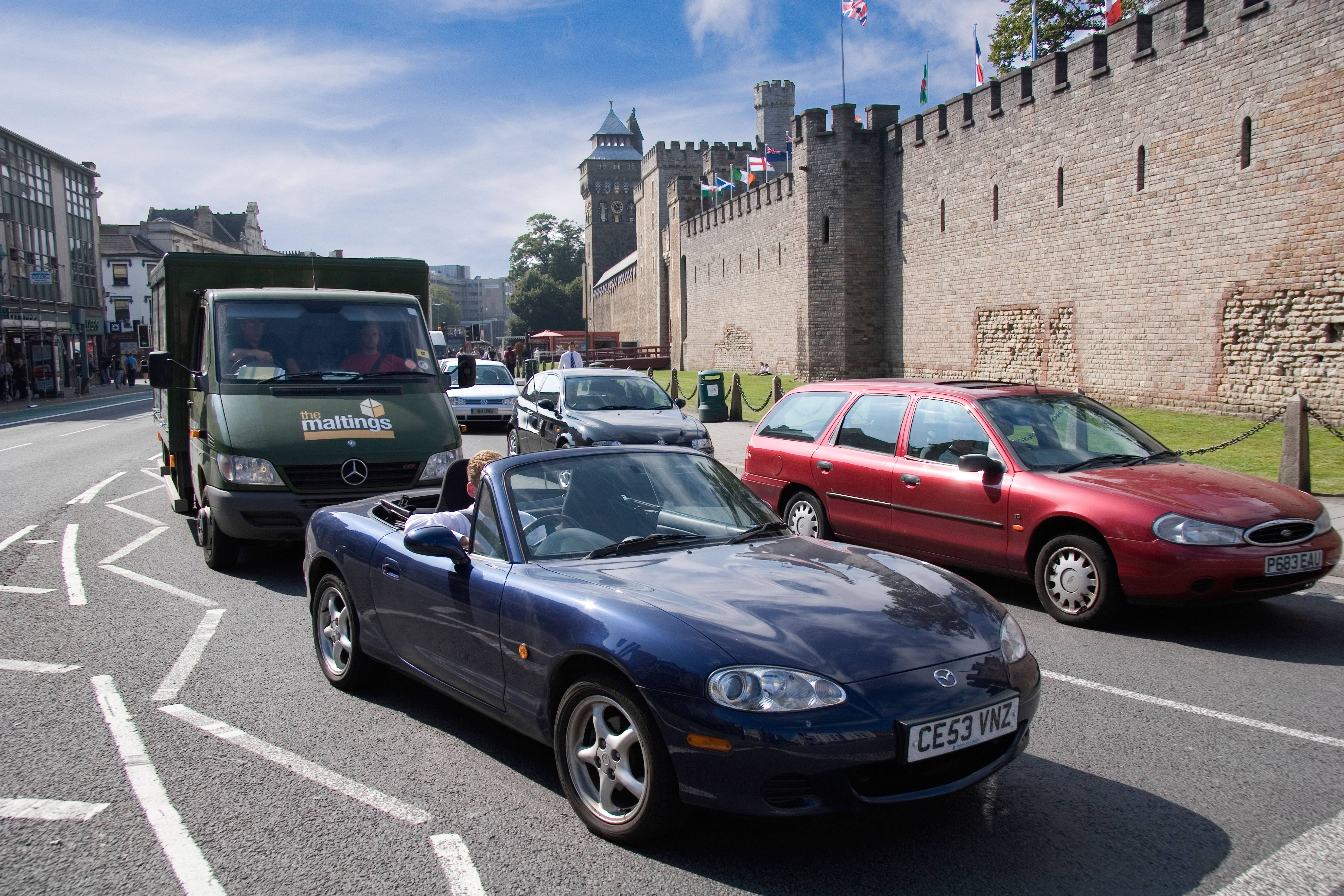Council considering plans Cardiff city centre congestion charge
Cardiff City Council said the introduction of a congestion charge would fund improvements to bus services, a tram network and enhance regional links.

Wales’s capital is considering becoming the latest place to charge motorists to drive into the city centre.
Cardiff City Council said the introduction of a congestion charge would be used to fund improvements to bus services with £1 fares, a new tram network and enhanced regional links.
Council leaders will consider a report on April 27 which aims to tackle air pollution, battle climate change and combat congestion.
A range of road payment schemes will be considered including road user payments, congestion zones, clean air zones and workplace parking charges.
We know our residents want action on climate change and they want the air their children and their loved ones breathe to be cleaner
It is unknown yet which scheme will be chosen, how much it will cost individuals or the area of the city the charges will apply to.
Council leader Huw Thomas said the city’s current transport system “does not work” and that “urgent action is needed” to improve people’s health and their access to public transport.
Road transport is said to be responsible for 40% of carbon emissions in Cardiff, which was the joint highest measured among the UK’s 11 core cities.
More than 9,000 Cardiff residents are registered with chronic obstructive pulmonary disease while 7% of adults and 6% of children aged 10 to 14 have been diagnosed with asthma.
Councillor Thomas said: “We know our residents want action on climate change and they want the air their children and their loved ones breathe to be cleaner.
“We know residents want to see electric buses and taxis serve the city, to have new train/tram links and stations, to drive on better maintained roads, with safe cycling and walking routes.
“We know they see the queues of traffic and know the damage this is causing to their health and the environment, while also strangling the city’s economy.
“It’s clear that action is needed if we are going to change the dial on this.”
Councillor Thomas said improvements to public transport would benefit everyone in the city and that the move was “as much about social justice as it is about the environment”.
“The people and communities who rely on public transport are often the worst served by our bus and train services,” he said.
“They are also breathing the dirtiest air and suffering the worst rates of childhood asthma and other illnesses.
“Improving our transport system is essential if we are to connect some of our most disadvantaged communities with the opportunities that are available in the city.
“I understand that there will be those who say that, ‘This is just another tax when the country is facing a cost-of-living crisis’.
“So let me address that head on. The current levels of traffic in Cardiff are costing the average resident hundreds upon hundreds of pounds each year and holding our economy back.
“That’s on top of the environmental and health damage caused by congestion.
“So, it’s imperative that we create a transport system where everyone – in particular our poorest and most disadvantaged communities – can be better connected with the jobs and opportunities we know are available in the city.
“We also know that, in Cardiff, the lowest levels of car ownership are amongst young people, those who are disabled, those living in the southern arc and those from a minority ethnic background.
“As a result, they are entirely reliant on public transport.
“So the people that are being hit the hardest by the cost-of-living crisis now will be the ones that benefit the most if a scheme is introduced in four of five years’ time, when hopefully we will all face a better economic climate.”
If accepted it could take until 2027 to implement the scheme, the council said.
It said it would seek to have the improvements to transport infrastructure in place before the levy came into effect, and said it was in discussions with the Welsh Government about borrowing funds to pay for the works to be done.
The authority said it would also consult the public on what the levy would be, who would be exempt and who would qualify for discounts.
Councillor Thomas said any scheme brought in would be “low cost” and said: “Fairness will be at the heart of our approach.”
He said it was “inconceivable” that blue badge holders and the economically disadvantaged would have to pay, claiming the authority would find a way to make the scheme “equitable” for all.
He added: “There are so many potential benefits at play here. Reducing carbon emissions will naturally help us tackle air pollution and climate change, but that’s not all.
“We also believe that a payment could help reduce congestion.
“The cost of congestion to the economy in Cardiff was estimated by Inrix to be £109 million in 2019.
“If we can reduce congestion, we can improve everyone’s ability to get where they need to be in the city more quickly.
“This can open up job opportunities for people and labour markets for employers, delivering a positive economic impact across the city.”
The Welsh Conservatives have opposed the idea with shadow transport minister Natasha Asghar MS saying it is “just another way to punish motorists”.
Bookmark popover
Removed from bookmarks